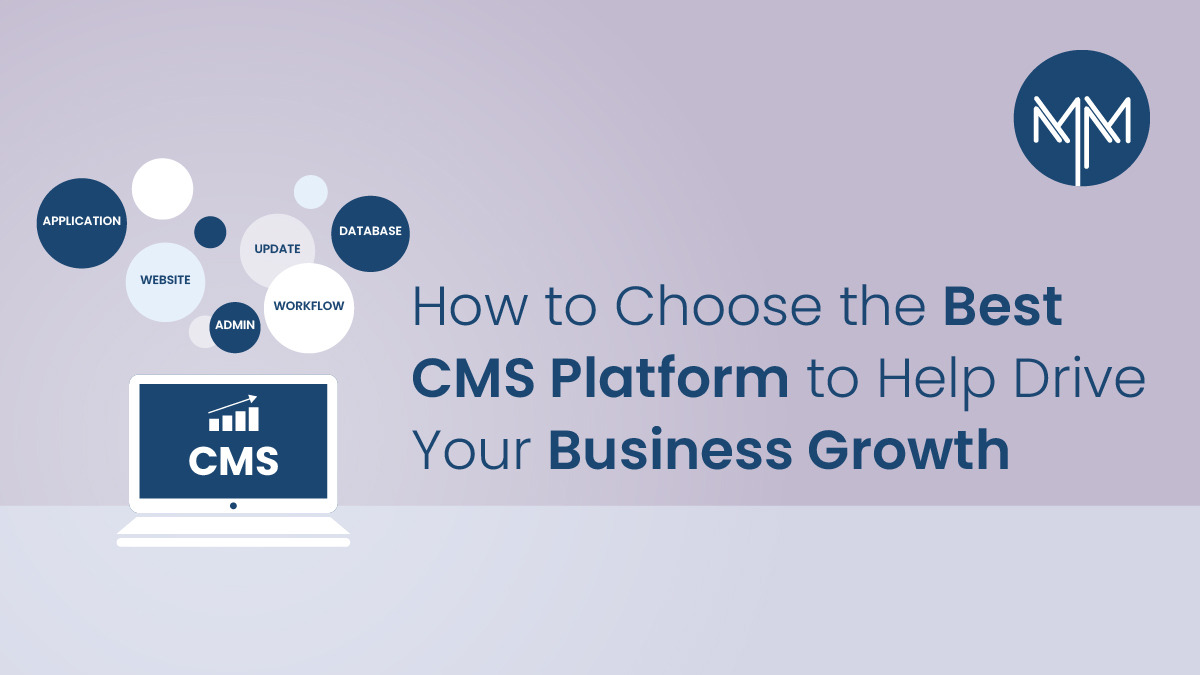The success of any content marketing strategy is dependent on the CMS platform and its features designed for traffic generation and user interactivity. Choosing the appropriate CMS is a crucial decision while building a website. It would ensure a seamless experience for the target audience and make the buyer’s journey more delightful.
Here’s a quick reckoner of some of the key CMS types along with their benefits.
Traditional CMS vs. Headless CMS
The two key types include the traditional and the headless CMS. You can decide the type based on the architecture and website’s long-term content goal. The demand for traditional CMS may be more, but many businesses still prefer headless CMS owing to its flexibility.
A headless CMS like Magnolia or Contentful differs from traditional CMS in significant ways. There is no direct connection with the front end; hence, allowing the front-end developers to retrieve data and present it in multiple ways. This way, they have no restrictions on designs and businesses get more opportunities to develop unique designs for competitive advantage.
Nevertheless, the main concern with headless CMS is its higher cost and the extra efforts needed to maintain the complex design templates.
On the other hand, traditional CMS like Drupal, WordPress, or Joomla are much easier to use and execute. Activities related to design and UI management can be operated from a single screen. The ease of managing multiple types of content makes traditional CMS more popular.
Small to medium-scale business owners with resource limitations can go for traditional CMS as it can yield profitable results. Nevertheless, if you are willing to come out of traditional CMS and budget is not a concern for you, just must consider headless CMS.
Other Types Of CMS
Apart from headless and traditional CMS, there are few other types of CMS you can explore:
- Open-source CMS: This type is made based on the source code of the CMS. There is no restriction related to source code usage. However, you may have to spend time for customization and installation of extra software or plugins to add any additional features. This CMS allows continuous testing and implementing changes in the content marketing strategy. WordPress and Magneto are the most popular in this category.
- Proprietary CMS: For companies, aiming to have complete control of the source code can opt for proprietary CMS. The development and testing cycle for this is quite long and thus not very recommended nowadays. Most legacy systems run on proprietary CMSes.
- Software as a Service (SaaS) CMS: This type of CMS also includes web hosting and technical support under a single provider. SaaS-based CMS could be purchased in a subscription model. The pricing will vary based on the amount of storage you would buy for the content.
Important Point To Remember Before Choosing The CMS
Here’s a quick checklist of points to consider before making the final decision.
- A CMS needs to be dynamic to provide customized and personalized experiences for customers. With better digital content, it is possible to provide a better experience to customers in their journey.
- Scalability is also another important feature, which allows websites to make changes based on the respective industry and their products or services.
- The CMS should support Omnichannel, making it possible for the audience to view the same content from multiple devices. Content can exist in the form of mobile, digital assistants, Kiosks, AR/VR, and many more. Hence, the CMS you chose needs to support all types of content as well.
- One code system can limit the function of CMS. Hence, you should choose a CMS that will allow the developers to code according to their preferred programming language.
- Measuring audience behaviour is important for future planning. Even if your content may be up to date, many times it may fail to seek proper audience attention. Hence, it is advisable to have web analytics integration with your CMS that can track all metrics. You can also keep track of what type of content is seeking maximum traffic to the website.
- CMS should support all SEO norms as it is the basic requirement of any website for generating more traffic and stand out in the vast ocean of digital content.
We know, ‘Content is the King’ in the digital era. Hence, you need to choose the appropriate CMS platform, keeping in mind the above points so that the content can establish proper engagement among the target audience and your website can stand out with its unique value proposition.
If you are still having doubts about which CMS platform could be best for you, get in touch with the experts of Matrix Media here.


 January 19, 2024
January 19, 2024

